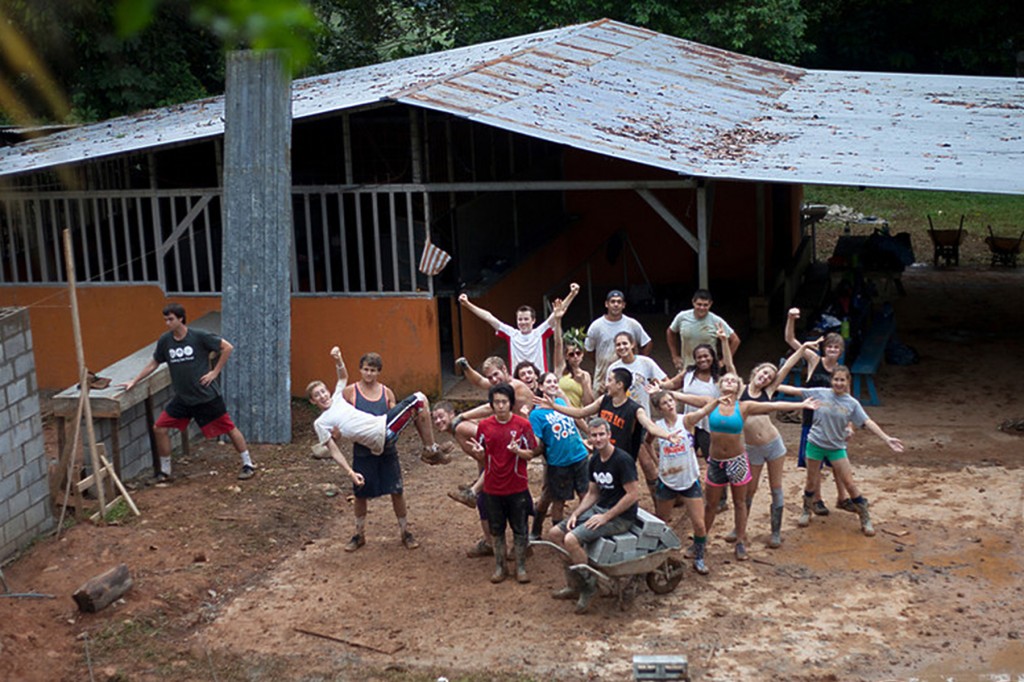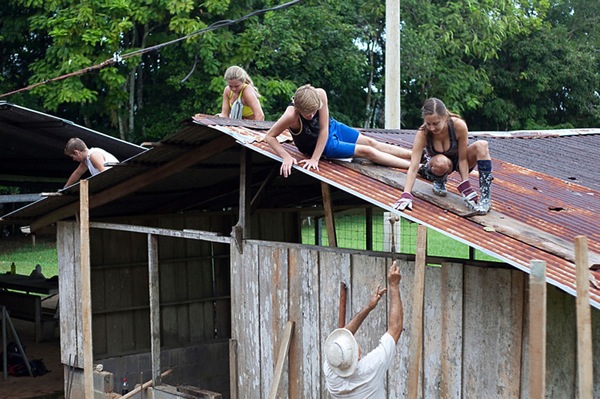
A local teen learned a lot in an unexpected place this summer: A small, rural village in Costa Rica.
“It was an incredible trip,” said Cassidy Lundy, 17, a Corona del Mar High School senior who traveled to Costa Rica with 17 other high school students from across the country to build a community center as part of a service project with Walking Tree Travel.
“We really have a lot to learn from these people, not just to give them,” she said. “I thought I’d be going on this trip as a great opportunity to give back and do some community service, see what I could do to help, but I came out of it learning so much more than I gave.”
The travel program’s mission is to “inspire individuals to become global citizens by taking an active interest in the world around them.”
The trip is designed “for a proactive, select group of travelers who seek an authentic international experience and the opportunity to grow as leaders and global citizens.”
As part of that experience, each student stayed with their own “home-stay” family, Lundy’s were the Mena-Alvarado family.
She was chosen as a journalism fellow to record her experiences.
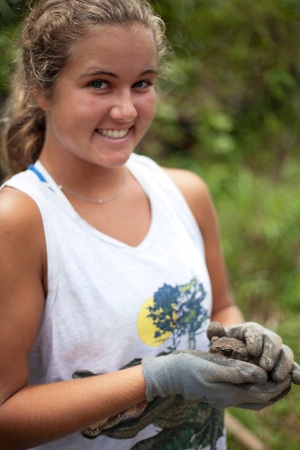
Her journal described the sense of community and the relationships between neighbors in the village of San Salvador, and compared that to her hometown of Newport Beach.
“That’s one of the starkest contrasts you can get,” she said. “Rural Costa Rican jungle village and the affluence here.”
“We forget the reason villages, towns, and cities came to be in the first place—to bring people together,” Lundy wrote in her journal, and during her time in Costa Rice she was “overcome with the unfamiliar, yet heart-warming feeling of community.”
Doors and windows are always open to friends and neighbors for anything they need, she continued.
“My host family was shocked when I explained to them our lifestyle of doorbells and gated communities. “Don’t people get lonely?” my host mother questioned in amazement,” she wrote.
She also noticed that the villagers were always friendly just in passing. They’d always stop to wave, say hello or smile, if they saw someone on the street, she said, unlike what Lundy has often experienced here in the states.
So she came back really wanting to change that, she said.
“I’ve adjusted my own life so that I make a conscious effort to talk to people and ask them how they are,” she said. “I feel obligated because not everyone is going to be able to see that kind of community in their lives, so I feel like I almost need to spread the warmth of community… People don’t know what they’re missing out on.”
That’s the kind of experience Walking Tree Travel wants the students to come home with.
“At Walking Tree, we offer teens the opportunity to widen their world view,“ according to Paul Laurie, director of Walking Tree Travel. “We hope that our journalism fellows bring their experiences home and start a dialogue with other kids to better appreciate the world which we all share.”
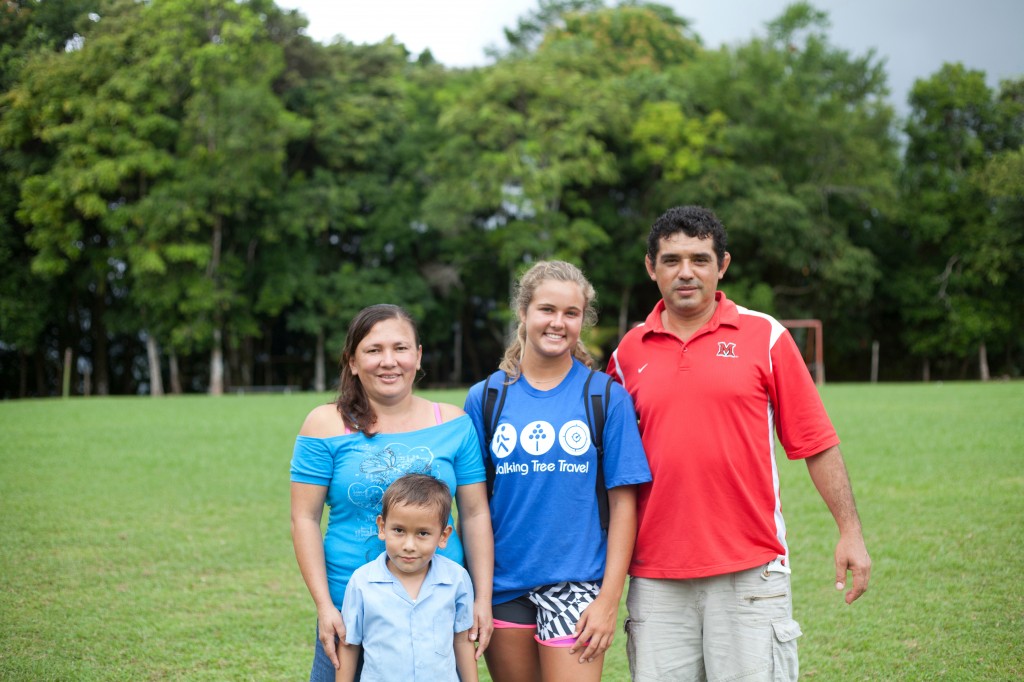
Lundy is now working as an alumni ambassador for Walking Tree Travel. She assists with the school presentations, speaks with her peers about the trip and promotes the program.
“I’m telling people, ’You gotta do this, it’s life-changing,’” she said, “because it really is. My life has completely changed since I went on this program.”
She first heard of the program when Laurie gave a presentation during her Spanish class in spring of 2012.
It sounded great to her and, despite her fear of having never been out of the country before, she went for it.
Lundy, who calls herself “outdoorsy,” said she had a lot of “pent up adventure spirit.”
“I needed to get it out of my system,” she said, and the program seemed like the perfect fit.
“It is the perfect mixture of giving back, practicing my Spanish, getting my adventure ‘fix,’ and just having an awesome time with people I’ve never met before,” she said.
Lundy, who was the lone participant from Southern California in the group, wanted part of the experience to be meeting new friends.
She got all of that and so much more.
The group of teens got along right away and felt like good friends before their plane even landed in Costa Rica, Lundy said.
The first day of building, instead of showing up at the scheduled 8 a.m., the group took it upon themselves to show up an hour early to get right to work.
“[That‘s] the sign of a very motivated group and that hardly ever happens,” Laurie said in the group’s final video. And that is something “really cool and unique with this group.”
“We were just so excited to start building and start helping out,” Lundy said.
The students worked toward building a new community kitchen and community center onto the village’s existing plaza, or football/soccer field, while demolishing an old building.
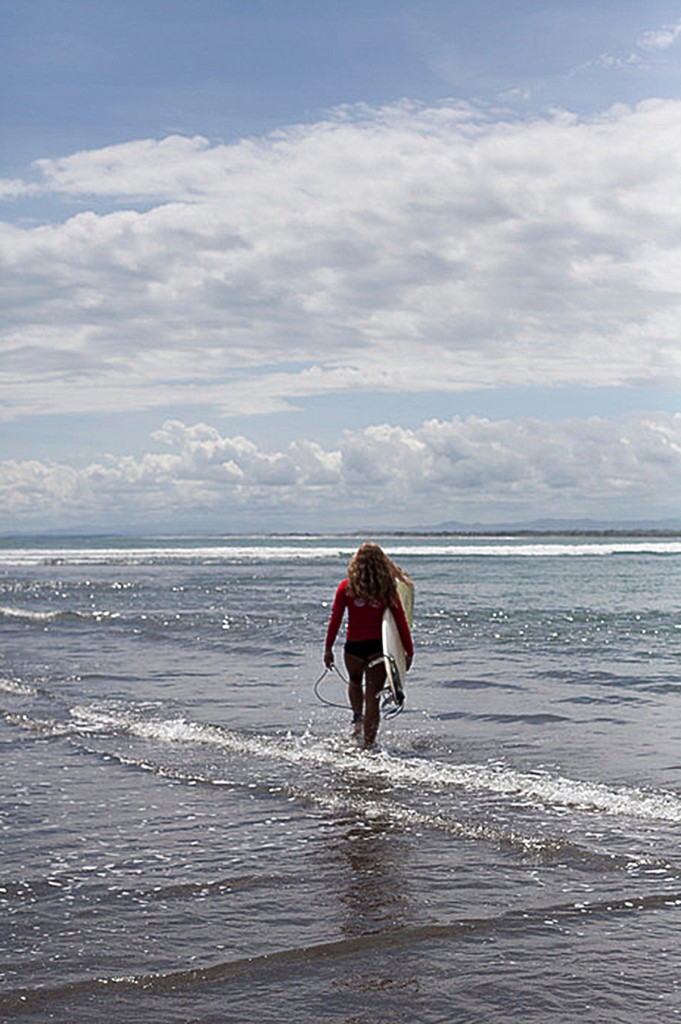
They had a few days off during their trip for relaxation and fun activities, including surfing, hiking to waterfalls and exploring the jungle.
It was a lot of fun, she said, “but at the same time, we really did spend two weeks working.”
The group was out there all day, doing “real, hard core” manual labor, Lundy said. At one point she was on a roof pulling out nails, one by one. Another day, she used the sledge hammer almost non-stop all day.
“Honestly, it sounds like grungy work, but it was probably the most fun I’ve ever had in my entire life,“ Lundy said, because her enthusiastic travel group.
They would work the whole day, with an occasional cement-mango fight, and everybody would be motivated to get back to work the very next day.
“It didn’t feel like work,” Lundy said. “It just felt so good.. It was the most core form of community service you could possibly do and that felt so good. To know that you’re sweating in 90 degree weather and humidity and all of your work is helping out other people.”
The villagers were all very grateful for the work the group was doing, Lundy added. They were very welcoming and generous, she said.
“It was amazing… For how little they had, they were willing to give everything to make us happy and welcome and comfortable,” Lundy said. “I was not expecting the extent of their generosity of the entire village.”
“It’s just natural for them… They’re not trying really hard to be kind, that’s just who they are,” she said.
“You really get the full experience with Walking Tree,” Lundy said.
The teen participants go to one of seven countries in Central America, Africa or Asia to work on various projects, like building community centers, digging wells, or painting buildings.
The program is for anyone willing to put themselves out there and want to help, Lundy said.
“It offers so many great opportunities for friendship, learning and future endeavors,” Lundy said. “I can’t imagine why anyone wouldn’t want to do it.”
Visit www.walkingtree.org for more information.
